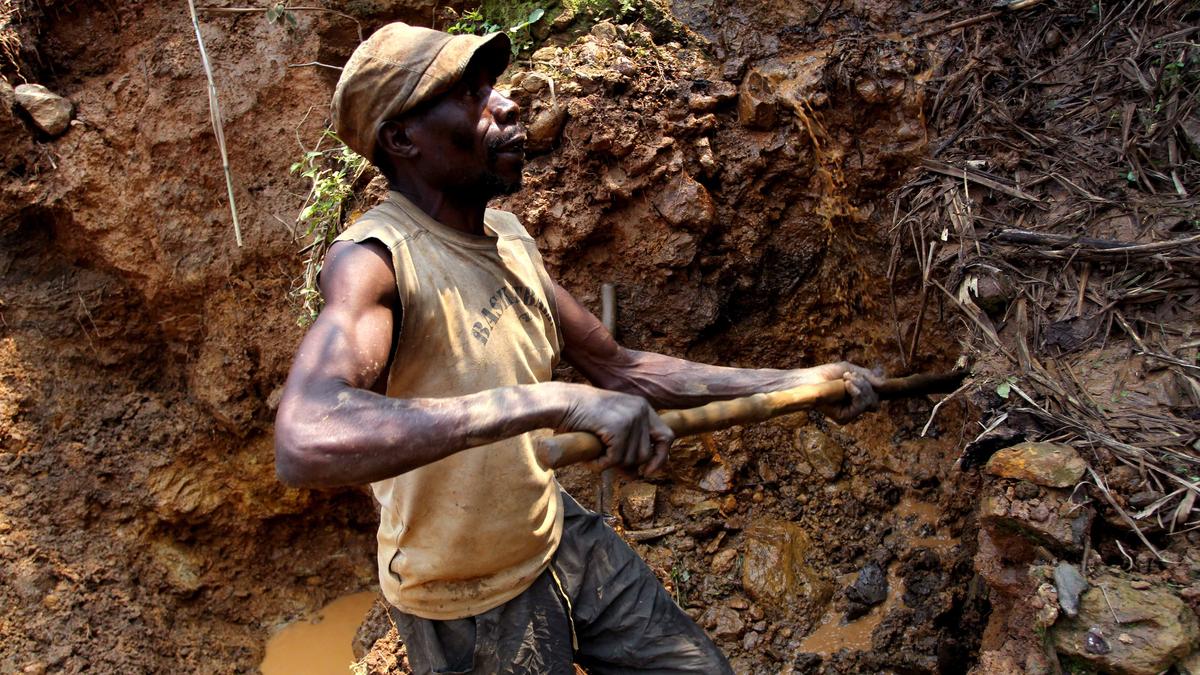Apple's Conflict Mineral Scandal: Is Your iPhone Made With Blood?
Apple, the tech giant we all know and love, is facing a serious accusation: complicity in horrific crimes against humanity. The Democratic Republic of Congo (DRC) has filed criminal complaints against Apple subsidiaries in France and Belgium, alleging the use of conflict minerals in their products. This isn't just about ethically sourced parts; it's about massacres, rapes, and the brutal exploitation of a nation's resources. Are you ready to uncover the shocking truth behind your favorite smartphone?
The Dark Side of Tech: Conflict Minerals in the DRC
The DRC, rich in tin, tantalum, and tungsten – crucial components in electronics – is plagued by armed conflict. These "3T" minerals, mined under appalling conditions, are fueling violence and human rights abuses. Armed groups, responsible for countless atrocities, control many of these mines, enriching themselves through the illegal trade of conflict minerals. These minerals find their way into global supply chains, potentially ending up in your devices, making you unwittingly complicit. The impact of conflict mineral trade extends beyond individual tragedies. Millions of Congolese people are suffering immensely from these continuing conflicts, with far-reaching implications for social and economic stability.
Apple's Denial: A 'Clean' Supply Chain?
Apple vehemently denies any direct involvement, asserting it audits its suppliers and adheres to stringent ethical guidelines. Their 2023 filing claimed no connection between their suppliers and armed groups in the DRC. However, the Congolese government's lawyers contend that Apple benefits from the systematic laundering of minerals extracted under violent circumstances, thereby facilitating the crimes taking place within their supply chain. They maintain the argument that Apple, through its purchasing decisions and supply chain procedures, enables and contributes to the atrocities occurring in the region.
Congo's Legal Fight: Holding Apple Accountable
The Congolese government's legal action in France and Belgium represents a groundbreaking moment. Targeting Apple's subsidiaries, the lawsuits allege war crimes, the laundering of tainted minerals, handling stolen goods, and deceptive commercial practices. Congo emphasizes the responsibility of these countries because of their colonial past, holding them morally responsible for current human rights atrocities. This action marks an effort to hold corporations directly accountable for unethical practices. It's important to investigate to determine if these legal filings will be successful in creating accountability and prompting a shift in responsible sourcing, ensuring ethical supply chains within the tech industry.
ITSCI: A Failed Certification Scheme?
At the center of the controversy is ITSCI, a monitoring and certification scheme designed to verify the ethical sourcing of minerals. Congo argues that ITSCI is flawed and has failed to prevent conflict minerals from entering the supply chain. Indeed, the Responsible Minerals Initiative (RMI), of which Apple is a member, suspended ITSCI, further discrediting the certification process. Apple, despite RMI's actions, continuously cites ITSCI in their reports as evidence of due diligence, indicating a willful attempt to circumvent addressing their role in the use of conflict minerals. Further investigation of ITSCI is required to ascertain the efficacy of their practices, the quality of oversight in its processes, and ultimately, to evaluate its contribution to issues involving human rights and ethical supply chains.
Take Away Points
- The DRC's legal action against Apple is a significant step towards holding corporations accountable for their involvement in conflict mineral supply chains.
- The allegations highlight the devastating consequences of conflict minerals and their impact on the people of the DRC.
- The debate around ITSCI's effectiveness emphasizes the urgent need for robust and transparent traceability systems in the electronics industry.
- Consumers have a right to know where the minerals in their electronic devices come from and to demand ethical sourcing practices.




